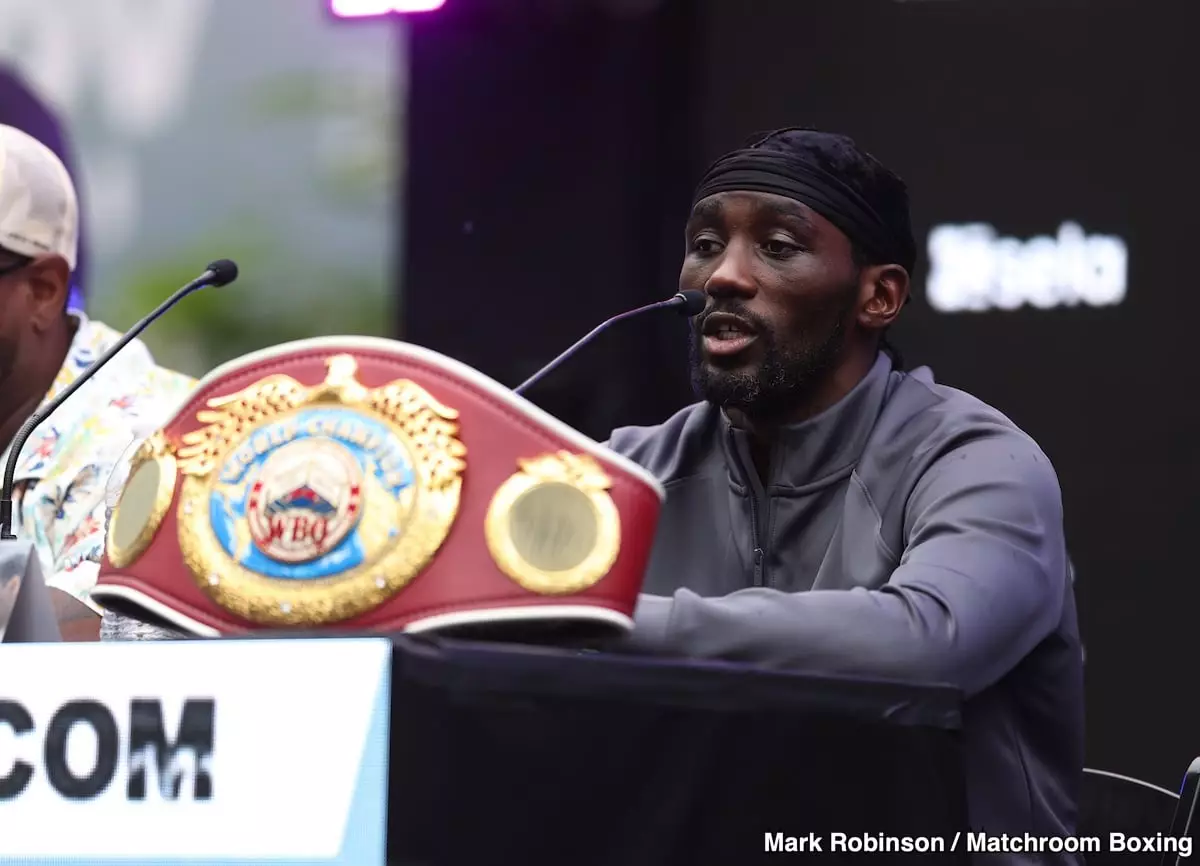The landscape of professional boxing is often riddled with controversy, and the recent exchange between Terence Crawford and Canelo Alvarez epitomizes this trend. In a sparring match of words, Canelo Alvarez expressed his belief that Crawford’s legacy is built upon a shaky foundation, suggesting that the Nebraska native has “only beaten one good fighter” in his career: Errol Spence. This critique struck a nerve with Crawford, prompting a heated response that shed light on the ongoing discourse surrounding legacy in boxing.
With an impeccable record of 41 wins and no losses, Terence Crawford’s career undeniably showcases his exceptional talent. He holds an impressive tally of 31 knockouts, illustrating his ability to finish fights decisively. However, Canelo’s assertion raises critical questions about the quality of opposition that Crawford has faced throughout his 17 years in the sport. The crux of the debate lies not merely in Crawford’s victories but in the caliber of his opponents. If we dissect his resume, it becomes apparent that it lacks the names that truly resonate within the boxing community.
Yes, defeating Errol Spence is a noteworthy achievement; nevertheless, this victory does not fully encompass the entirety of Crawford’s career. Spence, burdened by injuries and personal struggles over the years, may not have been at his best when they met in the ring. Consequently, Crawford’s legacy remains a contested narrative, often overshadowed by the whispers of his past matchups against less formidable foes.
Canelo Alvarez, a stalwart in the boxing arena, is not without his own accolades, holding multiple world championships across various weight classes. His comments on Crawford can be seen as a mixture of earnest observation and competitive rivalry. He pointedly remarked, “He just won one big fight,” directing attention to the fact that despite Crawford’s achievements, he may not have faced a sufficiently challenging list of opponents in his career. While Alvarez’s words may come off as criticism, they also encapsulate the necessary candidness needed in combating the constructed narratives surrounding fighters.
Crawford’s reaction to Canelo’s statements was equally revealing. He joked about making good fighters look like “nobodies,” asserting his belief in the effectiveness of his skillset. However, this raises further questions: Should not the greatest of boxers seek out the top-tier competition available to test their mettle? Crawford’s dismissal of meaningful fights against emerging talent such as Jaron Ennis or potential contenders at higher weight classes could indicate a reluctance to risk his undefeated status against unpredictable futures.
The role of promoters cannot be ignored when discussing the trajectory of a fighter’s career. In an era marked by strategic matchmaking, a fighter’s path to success is often lined with carefully curated opponents who pose low risk and high reward. Terence Crawford, although inherently talented, appears to have followed this trend, accumulating championships without consistently rising to higher-level challenges. Canelo’s words serve as a reminder that while fighting style and victories earn accolades, the context of those victories plays a significant role in how a fighter is perceived historically.
If Crawford yearns for recognition on par with contemporaries like Alvarez, he must reconsider his path. Engagements with the likes of David Benavidez or other contenders in the super middleweight division could bolster his standing, providing him with opportunities to not only expand his accolades but also reshape the narrative surrounding his career.
As Terence Crawford grapples with the implications of Canelo Alvarez’s words, the bigger question arises: how does a champion achieve lasting legacy? The measure of greatness in boxing ultimately extends beyond a flawless record to the sheer courage of facing the best. Crawford has the skills to etch his name in history, but only by venturing into battles that pose genuine challenges can he transform the narrative from one of skepticism to one of irrefutable legacy. Fans and analysts alike will be watching closely, awaiting his next move on the canvas of boxing history.

